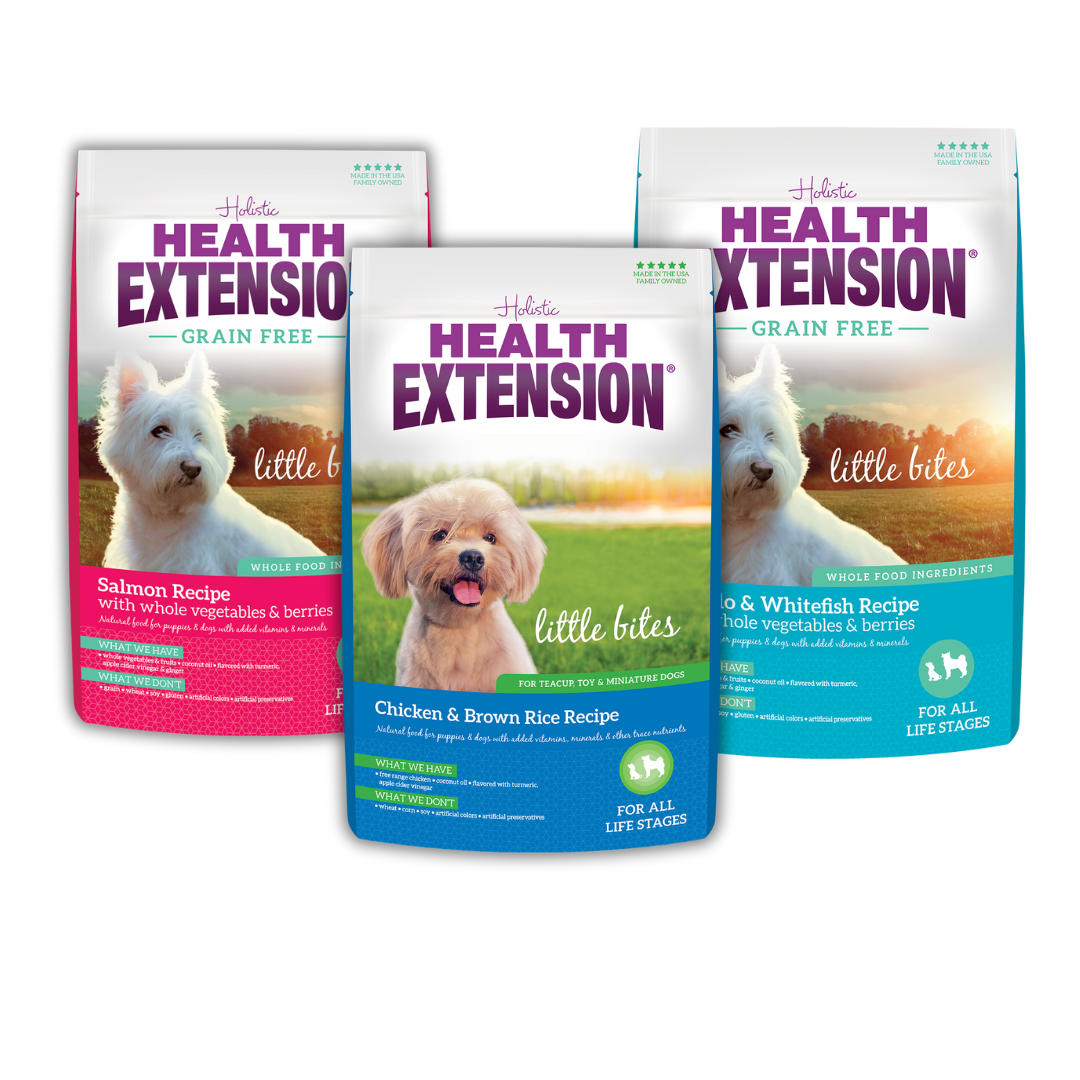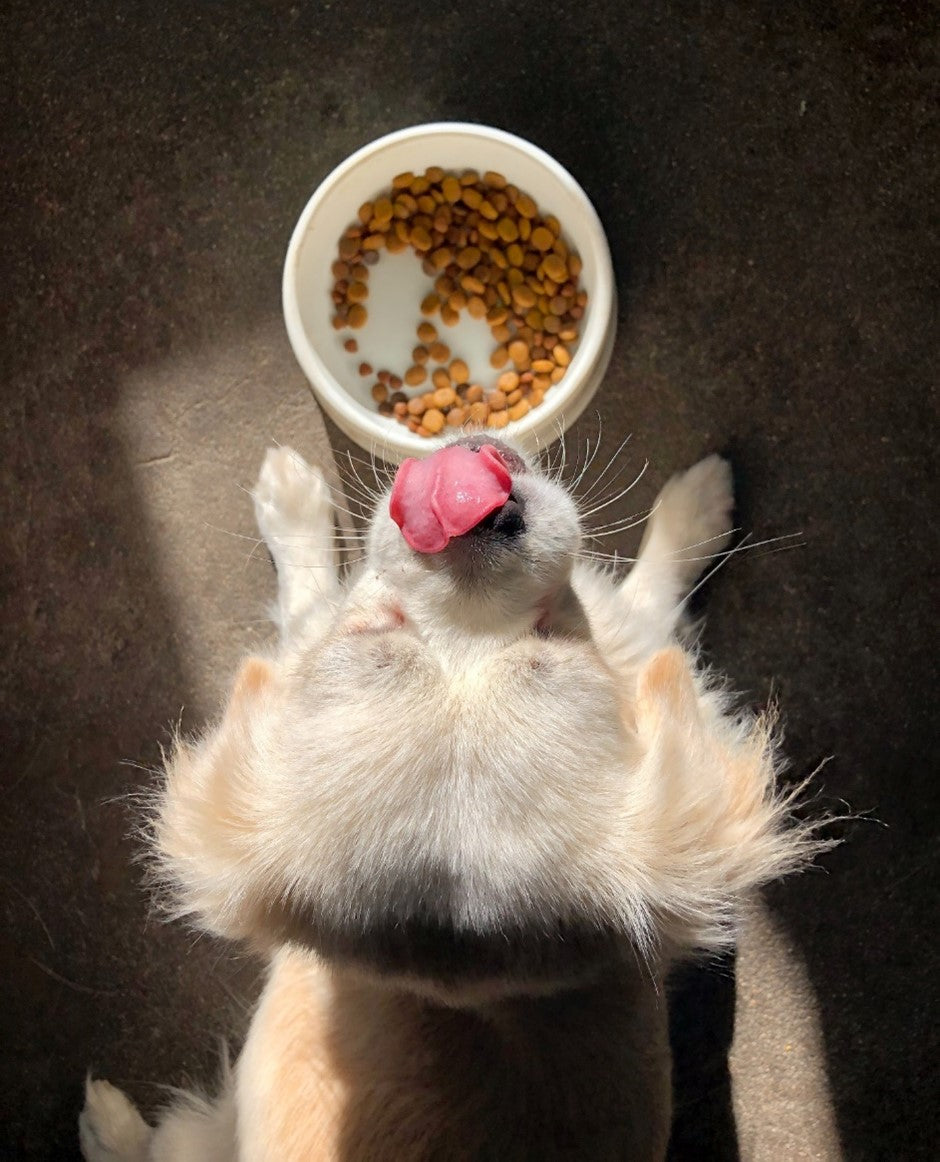In the last few years, there has been a large debate between pet owners over whether grain or grain-free food was the best option to feed their pets. With so many differing opinions and so much information to consume, it can be tough to know if you are doing the right thing for your pet’s health.
Health Extension offers both, so we compiled information that will guide you through the differences between grain and grain-free pet foods and the pros and cons of each so you can make the right decision for your pet’s nutrition.
What is Grain Pet Food?
Grain pet food is what many people would consider the “standard” pet food. These recipes contain one or more grains in their blends, like rice, wheat, barley, oats, corn, and soy.
Even though these foods contain grains, they can still be gluten-free. Gluten-free pet food would use only ingredients that do not contain gluten, and no wheat, barley, or rye.
Potential Health Benefits
Whole grains are an important source of vitamins and minerals for your dog. They are a key source of carbohydrates, which provide energy for your dog as well as dietary fiber which supports a healthy heart and digestion.
Whole grains also provide:
- Iron
- B vitamins
- Magnesium
- Selenium
- Fatty acids
Potential Health Risks
Many pet owners believe that grains can trigger allergies and digestive issues in their dogs, especially wheat, soy, and corn.
While it is possible for some dogs to be allergic to these grains, it is far more likely for your dog to be allergic to a specific protein as food sensitivities come from grains or fillers and a true allergic reaction will be caused by a protein.
Food intolerance and sensitivities generally happen slowly and build up in your pets’ system after some time. While an allergic reaction will happen almost immediately. If you suspect that your dog is having an allergic reaction to their pet food, check with your vet. They will assess your dog’s symptoms and recommend a grain-free diet if that is what is best for your dog.
What is Grain-Free Pet Food?
Grain-free pet food is exactly what it states, pet food that contains no wheat, corn, rice, oats, barley, or rye. That does not mean, however, that grain-free pet food contains no carbohydrates.
Grain-free pet foods will substitute grains for other forms of carbohydrates, like potatoes, sweet potatoes, lentils, peas, or quinoa. Because of this, some grain-free foods have as much if not more carbohydrates than grain alternatives.
Potential Health Benefits
One large benefit of grain-free foods is that they are likely to have a smaller number of ingredients, which is helpful for pets with allergies or digestive sensitivities.
Even if your dog’s allergy is not caused by the grain, there are many limited ingredient grain-free food options that are helpful for any kind of allergies.
It is important to note that this is not always the case, and you should always read the ingredients in your pet's food. Grain-free can give the illusion of a healthier option, but it can still contain many processed ingredients that are tough on your pup’s digestive system.
Potential Health Risks
The main controversy with grain-free foods stems from a potential connection between these foods and Canine Dilated Cardiomyopathy (DCM), a heart disease that involves an enlarged heart.
Despite the controversy, many studies have concluded that there is no connection between grain-free foods and DCM, and there were other underlying factors that contributed to the increase in cases.
What Type of Pet Food is Right for Your Dog?
What’s right for one pet is not necessarily right for another. The most important thing that you can do for your pet is to feed them a balanced, nutritional diet, which meets their specific health needs. Talk with your veterinarian or veterinary nutritionist before you make any changes to your pet’s diet.
If you are looking for high-quality, nutritious pet food that you can trust, Health Extension pet food has what your dog needs! Shop our lines of grain and grain-free food options family owned and operated and made from wholesome ingredients.





